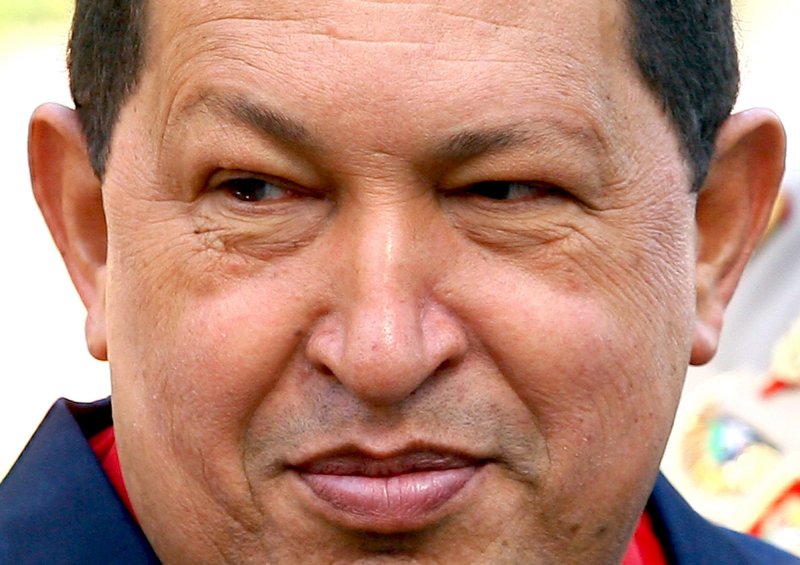Venezuela's President Hugo Chavez is seen as he arrives for his welcoming ceremony for in Tehran, Iran on October 19, 2010. UPI/Maryam Rahmanian |
License Photo
WASHINGTON, July 8 (UPI) -- Speculation abounds in Venezuela over the health and future President Hugo Chavez and his socialist revolution.
Cabinet ministers are said to be jockeying for increased prominence given the absence of an indicated successor to the 56-year-old leader stricken with cancer.
Ordinary Venezuelans, meanwhile, try to imagine their country without the man given -- like his role model Fidel Castro – to five-hour revolutionary orations.
"The situation has been difficult, but we're climbing the hill," he said upon his recent return from Cuba where he underwent surgery for cancer. "We will live."
How well and how long remains an open question.
It was reported that Chavez has colon cancer although the government denied that, stating only that the president was making a "complete recovery."
Chavez, born into a working-class family, served as a military officer and was once jailed for trying to overthrow the government. His brand of socialism has transformed the country, with state takeovers of key private industries, establishment of worker managed cooperatives and subsidized food program and public housing program.
He has also forged strong relations with Cuba, to whom he sends subsidized oil, and hob-nobbed with Iran.
But with the accolades from the rural poor and working-class Venezuelans has also come criticism for authoritarianism, as well as for high rate of inflation, too slow a pace of reform and rampant crime.
Through it all, Chavez has persevered and held his revolution together through sheer force of bombastic personality.
No wonder then his sudden disappearance in early June during a visit to Havana stirred anxiety among his followers, which increased as it was announced he had had surgery for a cancerous growth in his pelvic area.
"It's a miracle I am here, considering how I was," he said upon his return to Caracas. "We have started to beat the evil incubated inside my body."
The full extent of his medical condition hasn't been disclosed but that he will be under strict medical supervision. The question arises as to how involved he will be in the day-to-day tasks of running his government.
Chavez is known to be very much a hands-on leader in a very top-down government and he may now have to rely more on his Cabinet officers, loyalists all who share his leftist ideology.
Most prominent are Foreign Minister Nicolas Maduro and Minister of Energy Rafael Ramirez.
Venezuela late next year is to have presidential elections. Chavez, prior to his trip to Cuba, left no doubt he would run again as head of his United Socialist Party. However, there has been no post-operation reiteration.
If Chavez's health precludes a re-election bid, who would carry his blessing and carry on his revolution?
His brother Adan is a provincial governor who lacks charisma and is said not to have much standing with party leaders.
Vice President Elias Jaua is another possibility.
Chavez hasn't indicated whom, if anyone, he would smile upon. When he returned from Cuba he made a point to dampen rumors of a power struggle, saying he had confidence in all members of his Cabinet.
Opposition politicians are reportedly staying clear of the issue of Chavez's health and how sympathy for his condition would play in the 2012 voting.
Elections are still far off. Inflation, crime and the need for public housing are pressing issues. How the "commandante's" health affect his ability to deal with them is the question at hand.





